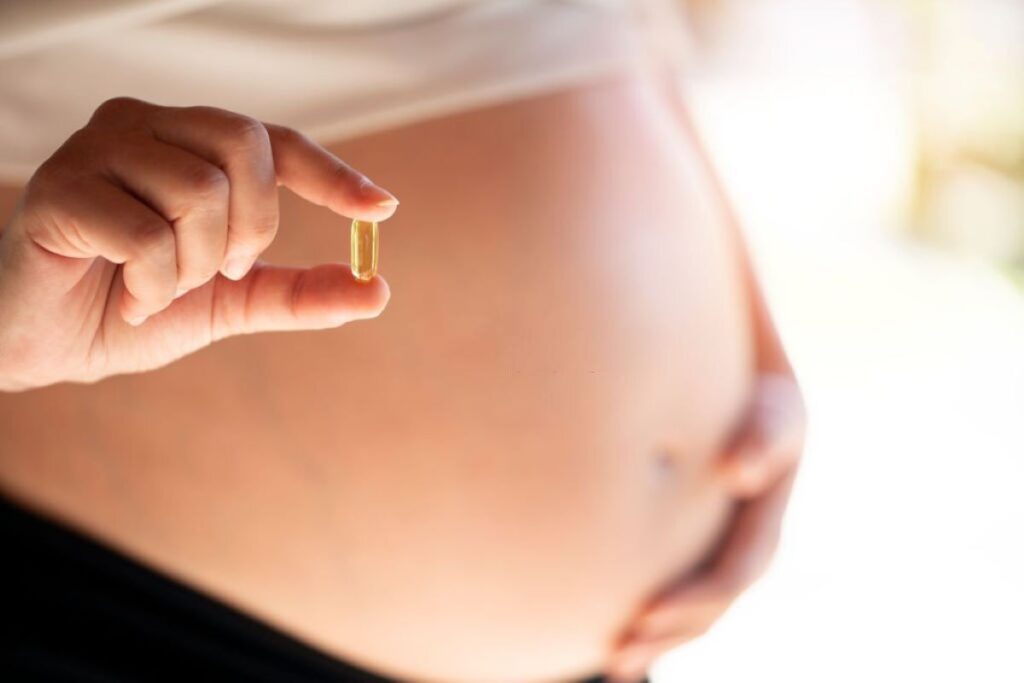Have you ever wondered if there’s any truth to the age-old belief that vitamin C can prevent pregnancy? This fascinating blog post will explore this popular theory’s origins, historical roots, scientific basis, and potential risks.
We’ll delve into ancient remedies, traditional medicine, and the possible mechanisms vitamin C might influence fertility. But is there any solid evidence behind these claims, or is it just a myth? Join us as we unravel the mystery surrounding vitamin C and its rumored contraceptive powers.
Prepare for a captivating journey that will challenge your assumptions and illuminate a controversial topic!
Can Vitamin C Prevent Pregnancy? Historical Perspective
Using vitamin C for pregnancy prevention was first discussed within the scientific community in 1966. A couple of Russian scientists addressed the mechanism of abortion induced by vitamin C.
While using vitamin C to prevent pregnancy might seem like a modern-day concept, its roots can be traced back to ancient times.
Throughout history, people have sought various methods of controlling fertility, and vitamin C has been one of the remedies for this purpose.
Ancient Remedies and Their Relevance Today
Several ancient cultures, including the Greeks, Egyptians, and Romans, were known to experiment with various natural substances to manage fertility. Some of these substances were plant-based and contained high levels of vitamin C.
For example, the Greeks and Egyptians used pomegranates and figs, while the Romans utilized ascorbic acid-rich plants like parsley and pennyroyal.
These ancient remedies were often passed down through generations, and their efficacy was based on anecdotal evidence and traditional knowledge. However, these practices can still provide insight into the historical context of using vitamin C for pregnancy prevention.

Vitamin C in Traditional Medicine
In addition to ancient cultures, various traditional medical systems have recognized the potential effects of vitamin C on pregnancy.
For instance, Traditional Chinese Medicine (TCM) has long used rose hips, rich in vitamin C, as a natural remedy to prevent pregnancy.
Similarly, some African and South American traditional medicines have incorporated high-vitamin C fruits and plants.
Vitamin C in fruit juices can also impact other supplements like creatine.
Can Vitamin C Prevent Pregnancy? The Myth Buster
The current body of research on vitamin C and pregnancy prevention is limited, inconclusive, and often contradictory. There is insufficient evidence to support vitamin C as a reliable method of natural pregnancy prevention.
The debate around vitamin C as a potential natural pregnancy prevention method has persisted for years. Let’s explore some theories and mechanisms proposed to explain this controversial relationship.
How People Think Vitamin C Can Prevent Pregnancy
Proponents of the vitamin C pregnancy prevention theory believe that taking high doses (1000 to 6000 mg per day) of this nutrient can interfere with the fertilization process or prevent the implantation of a fertilized egg in the uterus.
The potential mechanisms behind this theory include the following:
Impact on Progesterone Levels
Vitamin C is believed to interfere with progesterone production, a hormone essential for maintaining the uterine lining during pregnancy. Reducing progesterone levels may prevent the successful implantation of a fertilized egg, leading to its expulsion from the body.
Influence on Prostaglandins
Some people believe that vitamin C can increase the production of prostaglandins, hormone-like substances that regulate the female reproductive system. Higher prostaglandin levels can cause uterine contractions, potentially preventing implantation or expelling a fertilized egg.
Antioxidant Properties
Vitamin C is a powerful antioxidant that neutralizes harmful free radicals in the body. Some speculate that the antioxidant properties of vitamin C may have a detrimental effect on sperm, rendering them less viable and preventing fertilization.
Impact on Cervical Mucus
Another proposed mechanism involves the impact of vitamin C on cervical mucus. Cervical mucus is essential for sperm survival and transportation within the female reproductive system. High doses of vitamin C may alter the quality or quantity of cervical mucus, making it less favorable for sperm to reach the egg, thus decreasing the chances of fertilization.
Side Effects of Vitamin C in Pregnancy
While using vitamin C as a natural contraceptive might seem appealing to some, it’s essential to be aware of this approach’s potential risks and side effects.
Relying on unproven methods for pregnancy prevention can have severe consequences for your health and well-being.

Overdose and its Consequences
Individuals often consume much higher doses than the recommended daily allowance (RDA) to attempt pregnancy prevention using vitamin C. Ingesting excessive amounts of vitamin C can lead to various health issues, such as:
- Gastrointestinal problems: High doses of vitamin C can cause diarrhea, nausea, abdominal cramps, and bloating.
- Kidney stones: Excessive vitamin C consumption has been linked to an increased risk of developing kidney stones, particularly in individuals predisposed to this condition.
- Hemochromatosis: High levels of vitamin C can worsen iron overload in people with hemochromatosis, a condition that causes the body to store too much iron.
Interactions with Other Supplements and Medications
Using vitamin C for pregnancy prevention may also lead to interactions with other supplements or medications you are taking.
For example, vitamin C can increase the absorption of iron from supplements, which may cause issues for individuals with hemochromatosis or other iron-related disorders. Hemochromatosis causes the body to store too much iron; high doses of vitamin C could worsen iron overload and damage body tissues, especially the liver.
Check how vitamin E can impact liver functions and iron levels.
Additionally, vitamin C may decrease the effectiveness of certain medications, such as anticoagulants, leading to potential health risks.
Long-Term Health Implications
The long-term effects of high vitamin C doses for pregnancy prevention are poorly understood. However, consuming excessive amounts of vitamin C could contribute to chronic health issues like kidney damage or gastrointestinal disturbances.
The average daily recommended amount of vitamin C for an adult male is 90 mg, for females 75 mg, and for pregnant women, the amount is between 80 to 85 mg. However, the daily upper limit for vitamin C from all sources is 2000 mg for adults.
So taking 500 or 1000 mg of vitamin C from various sources during pregnancy shouldn’t be an issue; it won’t hamper or prevent pregnancy. However, 1000 mg from one source, like food, beverages, or supplements, can cause serious health issues like diarrhea, nausea, and stomach cramps.
Can women use folic acid and vitamin C during pregnancy?
Yes, folic acid and vitamin C can benefit women during pregnancy when taken appropriately. In fact, they are essential nutrients that play crucial roles in the mother’s health and the baby’s development.
Folic Acid
Folic acid, also known as vitamin B9, is particularly important during pregnancy as it helps prevent neural tube defects in the developing baby. These defects can affect the baby’s brain, spine, or spinal cord.

Healthcare professionals often recommend that pregnant women or trying to conceive take a daily folic acid supplement of 400-800 micrograms (mcg) and consume folate-rich foods, such as leafy green vegetables, beans, and fortified cereals.
Check whether you can take Folate and Vitamin B12 during pregnancy.
Vitamin C
Vitamin C is an antioxidant that plays a vital role in the growth and repair of tissues, wound healing, and the proper functioning of the immune system. During pregnancy, the recommended daily amount of vitamin C increases slightly.
Pregnant women should aim to consume 85 milligrams (mg) of vitamin C daily, while breastfeeding women should consume 120 mg daily.
Vitamin C can be found in various fruits and vegetables, including
- Citrus fruits
- Strawberries
- Kiwi
- Bell peppers, and
- Broccoli
Can Vitamin D Prevent Pregnancy?
No scientific evidence supports the idea that vitamin D can prevent pregnancy. Vitamin D plays a crucial role in various functions in the body, such as calcium absorption, bone health, and immune function, but it is not known to have contraceptive properties.
In fact, no vitamins have been scientifically proven to stop or prevent pregnancy. Vitamins are essential nutrients that play various roles in maintaining the overall health and well-being of the body, but they do not possess contraceptive properties.
It is essential to rely on proven and effective methods of contraception to prevent pregnancy. Some reliable options include
- Barrier methods (e.g., condoms, diaphragms)
- Hormonal contraceptives (e.g., birth control pills, patches, injections)
- Intrauterine devices (IUDs)
- Emergency contraception
How To Avoid Pregnancy Naturally?
Natural methods for avoiding pregnancy typically involve tracking and monitoring your menstrual cycle to identify your fertile days and abstaining from sexual intercourse or using barrier methods during those days.
These methods are fertility awareness-based (FABMs) or natural family planning (NFP). Some commonly used FABMs include:
Calendar Method
This method involves tracking your menstrual cycles for several months to predict when you will likely ovulate. You can estimate your fertile days based on your shortest and longest cycles.
Basal Body Temperature (BBT) Method
With this method, you track your basal body temperature daily, which is your body’s temperature at rest. A slight increase in BBT can signal ovulation. You should avoid intercourse or use barrier methods from the first day of your menstrual cycle until three days after the temperature rise.
Cervical Mucus Method
This method involves monitoring changes in your cervical mucus throughout your cycle. As you approach ovulation, your cervical mucus typically becomes clear, slippery, and stretchy, indicating your fertile days.
Symptothermal Method
This combines the BBT and cervical mucus methods, providing a more comprehensive understanding of your fertile window. Some people also track additional symptoms, such as breast tenderness or mood changes.
Standard Days Method
This method suits women with regular menstrual cycles between 26-32 days. It involves avoiding unprotected sex from day 8 to day 19 of the menstrual cycle, as these are considered the most fertile days.
Final Words
Using vitamin C as a natural pregnancy prevention method remains shrouded in mystery and controversy. While some theories suggest possible connections between high doses of vitamin C and reduced fertility, the available scientific evidence is limited and inconclusive.
To safeguard your health and well-being, relying on proven and effective contraceptive methods is essential. Remember, vitamins are crucial in maintaining overall health but do not possess contraceptive properties.
Stay informed, consult with healthcare professionals, and make informed decisions about your reproductive health to ensure a safe and healthy future. And for more information on supplements, click on our blogs.

I am a health and wellness enthusiast working in a Pittsburgh-based wellness clinic. My primary role as a consultant is to tailor a balanced lifestyle for my patients, where positive steps and potent supplements play a synergistic role.

